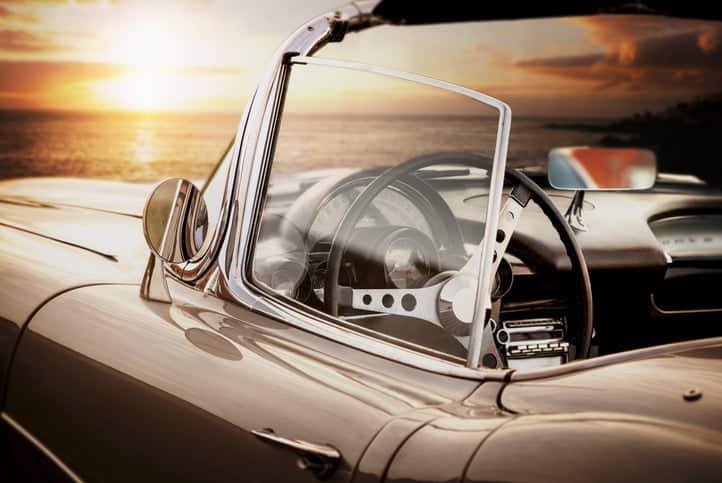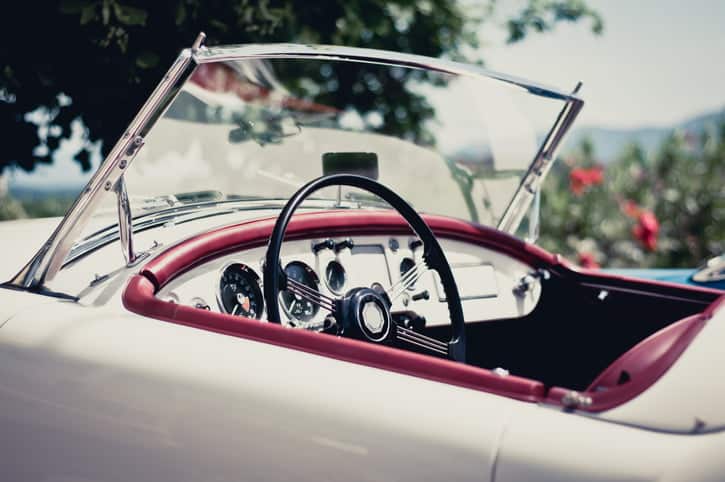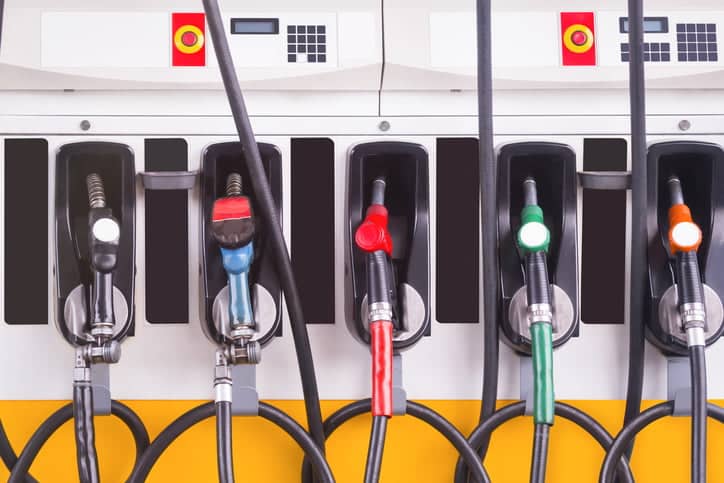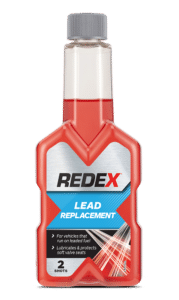If you’re thinking of buying a classic car, or you’ve recently bought one, you might be wondering what fuel you should use in it.
With the majority of high-octane leaded fuels axed for environmental reasons, it can be difficult to find the right one.
Older cars typically run on leaded fuels with a high octane rating, but since they were scrapped in the early 2000s, classic car enthusiasts have had to look for other alternatives to keep their motors on the road.
In this guide, we look at why modern fuels containing ethanol are bad for classic cars and the best available alternatives:
- Why are Some Modern Fuels Bad for Classic Cars?
- Which Fuels Work Best in Classic Cars?
- What Will Electric Mean for Classic Cars?
Why are Some Modern Fuels Bad for Classic Cars?
Cars built for lead-based fuels don’t work well with modern unleaded variants. Lead is needed to protect compounds in the fuel valves and without it, old engines can suffer serious damage and wear.
Not only that, but ignition firing can be affected and may need to be reset and adjusted to work with different types of modern fuel.
Pure petrol fuels with a high octane level have almost been phased out in the UK, with only a handful of suppliers now offering high-octane fuel at the pumps. Old cars rely on this kind of fuel because they aren’t built for modern alternatives, which can be far too abrasive in the fuel system.
Ever since the older-style of lead-based petrol was banned in 2000, fuel companies have provided standard unleaded which is mixed with a small quantity of ethanol. Ethanol is added to fuel to make it more environmentally-friendly, but its corrosive properties mean it isn’t a good match for older cars that aren’t built for this kind of fuel.
As the government looks to clamp down on petrol and diesel cars, fuel suppliers have launched new fuels containing a greater quantity of ethanol. This means it’s now even harder for classic car owners to find a fuel with a low enough ethanol count for use in their cars.
Fuels which contain ethanol are bad for classic cars for a number of reasons, including:
- Ethanol is “hygroscopic”, meaning it absorbs moisture. This moisture can condense in the fuel tank and cause components to rust, especially when the car is stored for long periods.
- Fuels containing ethanol produce over 30% less power than older types of petrol, so the performance of older cars not built to work with this kind of fuel can suffer.
- Ethanol is a powerful solvent and can corrode materials like rubber and fibreglass, both of which are often found on classics.
Can I Use Redex Fuel Additives with E10 Petrol?
E10 petrol has arrived in UK fuel stations, replacing the customary E5 formula for standard petrol. The good news is, you can use Redex petrol fuel additives safely with E10 fuel, so you can continue to benefit from improved engine health and performance.
Simply add a shot of Redex each time you top up the tank.
It also provides an additional protective layer to prevent corrosion from the increased ethanol content found in E10 Petrol, which means that even if your car was manufactured before 2011 you can use E10 fuel safely by adding it as well.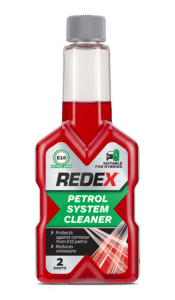
Which Fuels Work Best in Classic Cars?
Although fuels containing ethanol aren’t good for collector cars, there are a few different options available when it comes to keeping your car on the road.
High-Octane Fuel
A handful of fuel suppliers in the UK do offer high-octane petrol, which is often billed as “performance-enhancing”. Designed for sports cars, these fuels have a high-octane rating that suits older engines, but be warned as some still contain up to 5% ethanol.
You can increase the octane rating of your petrol yourself by using Redex Power Booster – this helps you control the power levels yourself to get the right performance.
Standard Low-Ethanol Fuels
While high-octane fuel is preferred for classics, they can run perfectly well on lower octane petrol, especially if the ignition is adjusted to counteract the change in combustion rate.
But remember that many standard fuels on the forecourt now contain up to 10% ethanol, so you need to do your research and find one that’s got the lowest amount of ethanol you can possibly find.
When searching for different fuels, look for the ‘E’ sign which shows the percentage of ethanol in the fuel. For instance, E10 contains 10% ethanol, E5 contains 5%, and so on.
LPG
If you’re willing to sacrifice the authenticity of your classic in exchange for cheap, readily-available and environmentally-friendly fuel, converting it to run on LPG is an option.
LPG, which stands for Liquefied Petroleum Gas, is becoming more popular in the UK, with drivers favouring it for its affordability and reduced C02 emissions.
It can be quite expensive to have the fuel tank converted to accept the new fuel, but more car owners are choosing it these days.
Converting to Modern Engine
Many classic car owners simplify the problem altogether by converting to a modern engine system, so you can use standard fuel without any worries. Like LPG conversions though it can be expensive, so if you’d prefer to keep your car in its original condition then you’ll need to consider alternatives when you top up.
Lead Replacement Additives
If you own a classic car built for leaded fuel, you can either convert it, or take the easier option of using a standard fuel and adding lead to it with an additive like Redex Lead Replacement. It contains additives which lubricate and protect the fuel system, safeguarding it against the harmful effects of ethanol while guaranteeing excellent performance.
Lead Replacement is specifically designed for use in classic and vintage cars and should be used in every tank to maintain your car’s performance and protect vulnerable components like valve seals.
What Will Electric Mean for Classic Cars?
In some ways, classic car owners face a race against time – and technological progress – to find sustainable and readily available sources of fuel with which to power their cars in the future.
Between governmental legislation and the rise of electric motoring, it’s becoming increasingly difficult for classic car owners to find compatible fuel at their local forecourt. And with super unleaded fuels likely to be on their way out in the next five years or so, the future of classic car ownership is looking less and less certain by the day.
There is, however, some hope on the horizon – not least VW’s continued efforts to begin producing the world’s first fully synthetic fuel. If successful, this ‘manmade’ fuel could provide a long-term solution the problem of diminishing fuel supplies, giving classic car owners a reliable source of fuel that doesn’t endanger their vehicles.
That said, the prospect of synthetic fuels has been met with some speculation by industry experts, and it’s clear that the UK government’s intention is to continue pushing towards electric motoring. It remains to be seen what this could mean for classic car owners in the long term, but it’s likely to translate into ever-decreasing availability of compatible fuels.
For more fuel advice and car maintenance guides, be sure to check out the rest of the Redex blog right here. Or, for our full collection of petrol and diesel fuel additives, visit our homepage today.
